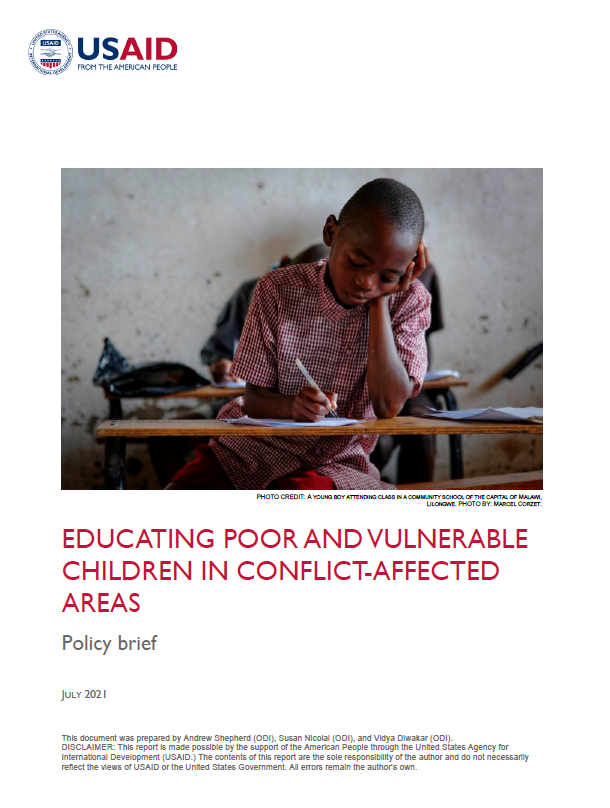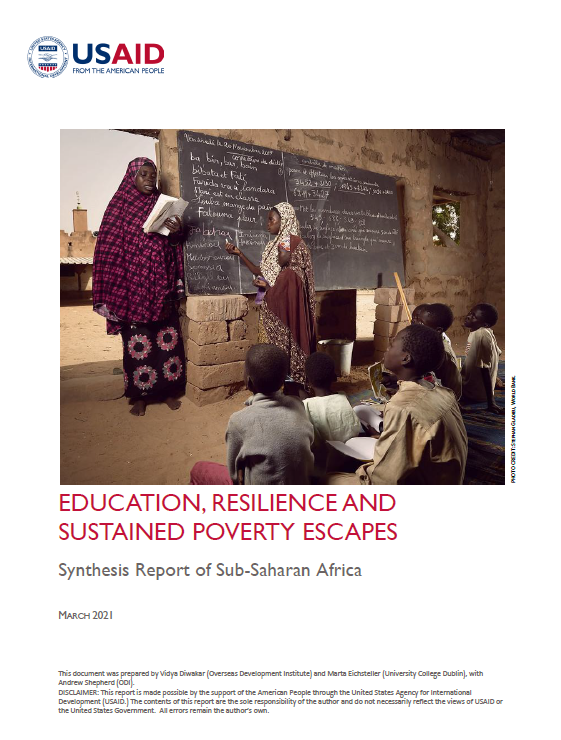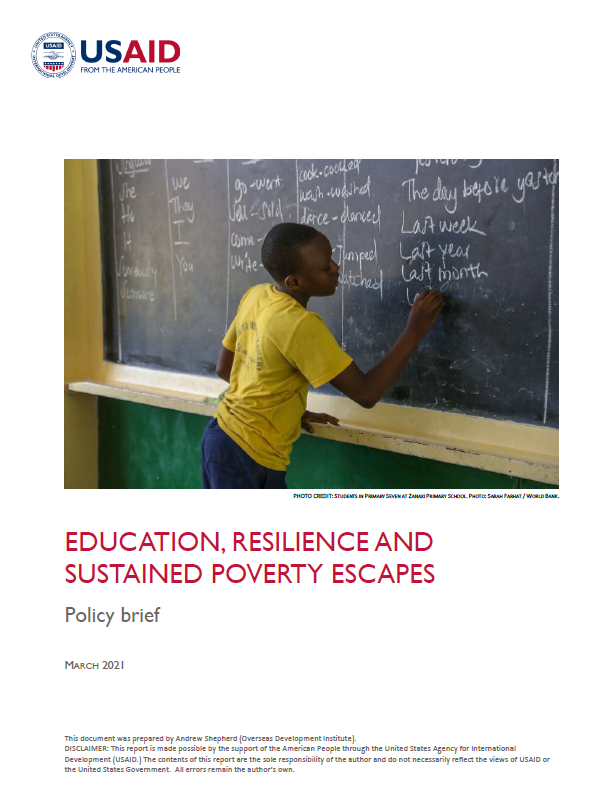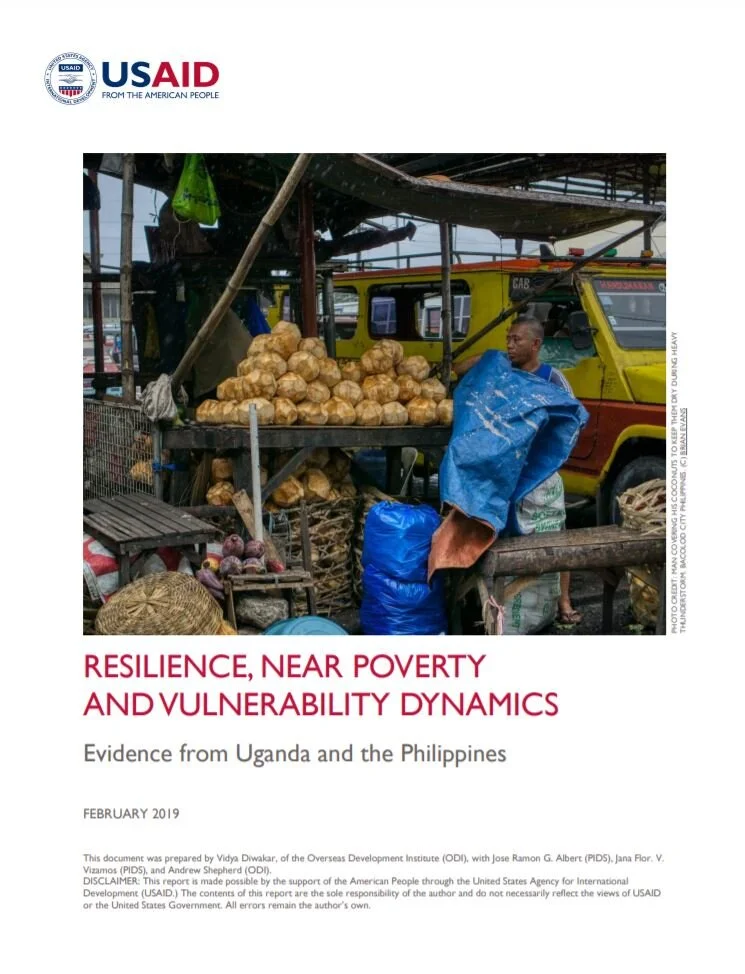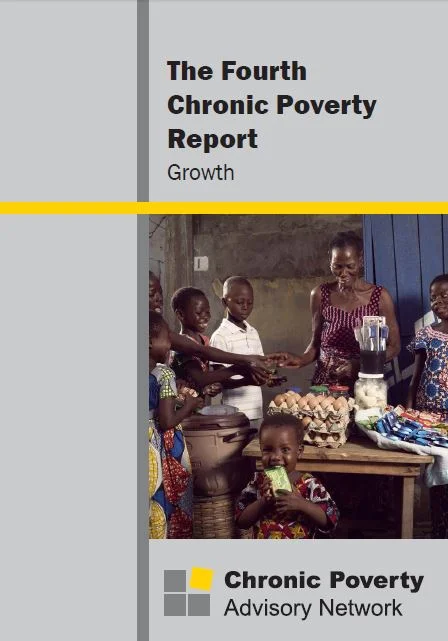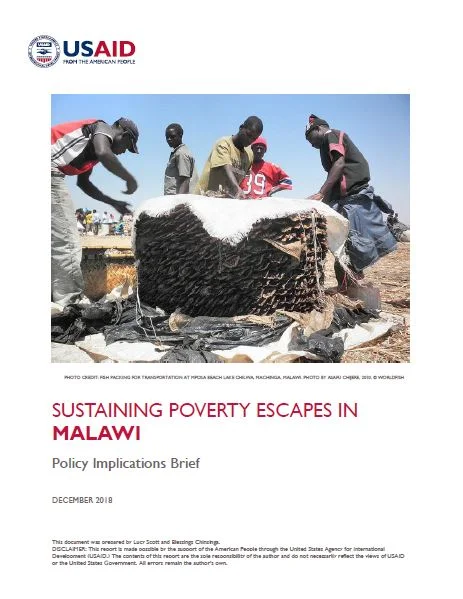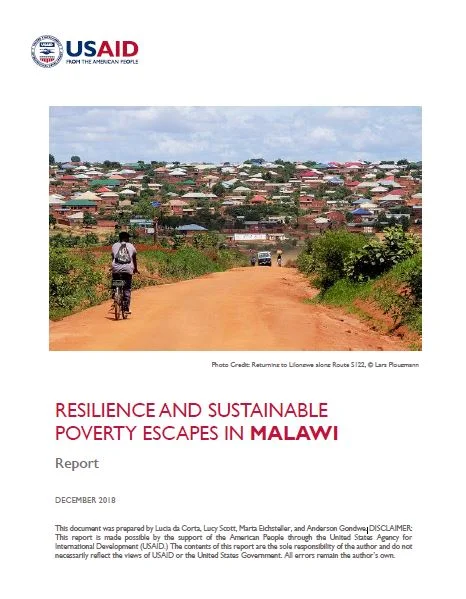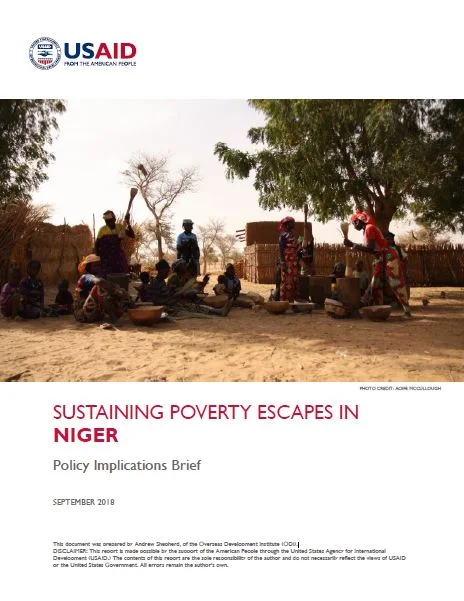“People, economy and the environment matters for development. You cannot talk about
just one. Because if you talk about the economy, what about the people?” (FGD, Daraga).
This policy brief draws on results of mixed methods research in the Philippines, to offer policy and programming implications for sustained poverty reduction. The data sources on which the research was based are:
analysis of the Family Income and Expenditure Survey in 2003, 2006, and 2009;
key informant interviews in Manila in 2018 with a range of policy makers, researchers, development partners and program implementers; and
qualitative interviews with 40 households in the Bicol and Soccsksargen regions of the Philippines in 2018 to investigate the pathways of sustainable poverty escapes.
This policy brief advocates a portfolio response to poverty reduction that incorporates a sound understanding of poverty dynamics. In doing so, it focuses on four areas. Out of the long list of topics described in the research report, these four areas were chosen as they emerged as particularly salient issues out of the quantitative and qualitative analysis of resilience and sustainable poverty escapes:
Improve targeting of health insurance to strengthen social safety nets and complement household efforts already underway to escape poverty through social capital;
Deepen financial inclusion to build resilience in high risk environments to prevent households from falling back into poverty;
Ensure safe work conditions, and develop skills to sustain poverty escapes; and
Strengthen value chains in rural areas where agriculture is the mainstay of the chronic poor.
Author: Vidya Diwakar
Click here to download the Policy Brief.
Note: This Policy Implication Brief is accompanied by a report , which presents policy implications for sustaining poverty escapes in the Philippines that emerge from the analysis presented in this study
Sustainable and transitory escapes out of poverty
This report is part of the Resilience and Poverty Escapes project, supported by:



